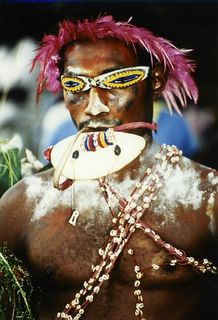 Maureen and Tony WheelerThe Age
Maureen and Tony WheelerThe Age
From backpack to business class
By Orietta Guerrera
April 15, 2005Lonely Planet co-founder Maureen Wheeler makes no apologies for flying business class on long flights with husband Tony, or for enjoying the occasional stay at architecturally splendid hotels.
"I'm 55 years old, I've been working at Lonely Planet for 32 years, and we started flying business class maybe 10 years ago," she said yesterday. "And I'm certainly not going to go back to economy unless I have to.
"I'll fly economy on any trip less than nine hours - that's my general guide. Above nine hours, I'll go in business class."
Her comments come in the wake of questions being raised in the prestigious magazine The New Yorker as to whether the Footscray-based company has lost its point of difference from other travel guides and travelled too far from its roots of catering for generations of backpackers.
Ms Wheeler and her husband came under the microscope in a New Yorker feature written by Tad Friend titled "Have Tony Wheeler's guide books travelled too far?"
Friend visited the Wheelers - who still own 70 per cent of the company - at the Footscray headquarters and then travelled with them to Oman in January. He commented on the couple flying business class and staying at $500-a-night hotels.
The world's biggest independent travel publisher started on the kitchen table of the couple's Sydney flat in 1973. Newly married, and having just arrived penniless from a journey beginning in London through Asia and on to Australia, they wrote the guide Across Asia on the Cheap. The 94-page, hand-collated, stapled guide sold 8000 copies.
Today, countless travellers clutch Lonely Planet guides as they experience the world's sights. Sales are between $80 million and $100 million, with 600 titles - including guides and phrase books - available. Their original "shoestring" guides now make up about only 3 per cent of their sales.
The company that has long boasted that it does not accept advertisements, is now considering a hotel booking service on its website.
Friend's article noted that Ms Wheeler had raised a finger back to a child "beggar", who "flipped her the bird" when she did not give him money. Yesterday Ms Wheeler - who was holidaying with a friend in Queensland - denied the child was a beggar but rather a young boy playing up in front of his rowdy mates.
"(Oman) is a prosperous, developed country," she said. "This was not some poverty-stricken little beggar by the side of the road that I was being nasty to.
"It was one of those sorts of things... it took two minutes of my life and I'm going to go down in history as the woman who flips (her finger) to beggars."
There was mostly sympathy from Lonely Planet's readers on the company's website yesterday. The Wheelers had "paid their dues" and were "reaping the fruits of their success", readers wrote.
They noted that the company continued to donate 5 per cent of its net profits to grassroots community projects and made a $500,000 donation to tsunami victims.
One reader wrote that they had bumped into Mr Wheeler in Iran last year and, "contrary to the article, he was staying in a hotel even crappier than the lousy one we were staying in".
Ms Wheeler said there was no denying the brand had become mainstream - "It would be ridiculous for me to claim that we were still the same little cult company that we were when we started 30 years ago."
But, she said, the travel industry had also changed. For instance, many people who were once attracted to package holidays, now wanted something more and turned to Lonely Planet guides.
"Because there's so many more of them travelling, and because we're doing the books that they want, I think in that way travel itself is a mainstream activity."
The Age Interview*******************************************
The Australian
Travel bible authors' wheel of fortune
By Georgina Safe
April 14, 2005 Maureen Wheeler ... reportedly gave the finger to a beggar, although she was provoked. The Australian founders of the Lonely Planet guides stay in $500-a-night hotel rooms, give the finger to beggars and have lost touch with their counter-culture roots, according to a profile in The New Yorker magazine.
"Have Tony Wheeler's guidebooks travelled too far?" asks journalist Tad Friend in the article in next week's issue.
Wheeler and wife Maureen "established Lonely Planet, in 1973, as the scruffy but valiant enemy of the cruise ship and the droning tour guide," writes Friend. Now, with annual sales of more than 6 million guidebooks, Friend believes the company may have lost its point of difference.
"At the same time, however, a number of the company's authors worry that Lonely Planet itself has begun to manufacture ersatz Lonely Planet guides," writes Friend. "The books' iconclastic (sic) tone has been muted to cater to richer, fussier sorts of travellers, many of whom, like the Wheelers themselves, fly business class."
Friend spent time travelling with the Wheelers in Oman and in the Lonely Planet headquarters in Melbourne to research his 7000-word article.
In Oman, he writes, hotel stops "would usually be the best available. (The Wheelers' room at the Chedi, in the capital, Muscat, cost some $US400 a night.)" Friend and the Wheelers were approached by a small boy, a beggar, asking for "baisa, baisa" - money.
Writes Friend: "'No biasa,' Maureen said in a friendly way. She showed a real interest in children and always replied to them. This boy waited till we got in the car and then flipped her the bird. She flipped it back: 'Sit and spin, kid!"'
Friend also observes "the company that had prided itself on not taking advertisements is about to start a hotel-booking service on its website".
For all his criticism, Friend readily admits "the Lonely Planet guides were my lifeline" while travelling in the late 80s. However, he opines, "Like Apple and Starbucks and Ben & Jerry's, all of which began as plucky alternatives, Lonely Planet is becoming a mainstream brand."
In the article, Wheeler concedes he is concerned about his company's outlook changing from bohemian to bourgeois. "Those vivid colours of the early books ... once they get blended with so many other authors and editors and concerns about what the customer wants, they inevitably become grey and bland."
Maureen Wheeler told The Australian she did not believe the article was an accurate representation. "Tad told us that he thought it would be interesting to do the idea of how Lonely Planet has become a mainstream publication, which there is no doubt that it has," she said. "(But he) came to the story with it pretty much framed in his mind ... there are different interpretations of stories, and that is his."
The Australian Article about The New Yorker Article***************************************************
Thorn Tree
The Australian ArticleI think this is a bit much, so what if they stay in hotels now, when I go somwhere on business now, I use my same lonely planet guide for hotel advice, it makes sense to have different accom options for people, I think the Wheelers have paid their dues!
The beggar thing suprises me if true bearing in mind I think LP were the first Aussie company to put their money where their mouth was post Tsumani.
Thoughts people?
Posted: 13 Apr 2005
----------------------
"there are different interpretations.........................and that is his" about sums it up. Re the beggar, a chap in Vietnam had best idea - he'd offer to buy a kid a bread roll or piece of fruit etc. - kid not interested, you've to wonder where the money might go.
It is a bit of an industry in some places, and as reported, this kid gave the bird, so he gets it in return - good on Maureen
Not changing with the times is a sure recipe for your demise.
Posted: 13 Apr 2005
-------------------------
Who gives a toss where the Wheelers stay? They're reaping the fruits of their success.
It's all relative in my opinion. There would be many people who access this site who have been through the hoop so to speak spending extended periods of time abroad living and squatting in flea and bed bug infested dorms/hostels. I know, I used to and had the time of life notwithstanding the fact I didn't know of, nor did I have access to finances to do it any other way.
Older, wiser but still employing the backpack and having more disposable income than previously, there is absolutely no way I'm spending my hard earned living in a windowless/airless room subsisting on dhal and chapatti just so I can prop myself at a table in a hostel somewhere indulging in that time honoured and fatuous one-upmanship pastime of who can travel on the most miserable fucking budget for the longest period of time.
As for the beggars - I've got my own rule of thumb on that one. Able bodied beggars with all limbs intact and looking you straight in the eye get shunted post haste. Blind/crippled and the limbless get my money every time.
Posted: 13 Apr 2005
----------------------------
2 brilliant contributions above (yes, includingyou G&L).
Nothing shits me more than backpackers here, and in person, getting into a pissing competition about who travelled for the smallest amount of money and got the cheapest digs/food etc.
When you heaepeople talking this way it quickly becomes obvious it became the whole point of the holiday and they spent so much time cutting corners they missed the whole point of the travel.
I knew people who worked in Kyoto for a year doing English language classes - they stayed in a single room, lived off packet noodles and made a fortune - but never once ventured out to see the temples and gardens and restaurants - what a waste! And guess what, they reckon Kyoto (one of the most beautiful places I've ever been) was a hole.
I reckon Lonely Planet is just moving with the times and growing up - anyone who wants a guide to living off $5 a day can get one of dozens of other guides - LP seems to have recognised most of its readers are looking for a bit more these days.
The author knew that wouldn't sell his story, so decided to get stuck in - a very easy and cheap trick for journo but it always works.
Thorn Tree Thread -- Read the Rest
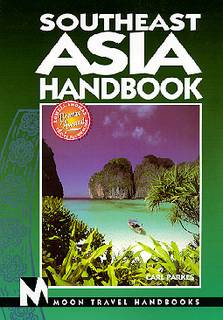











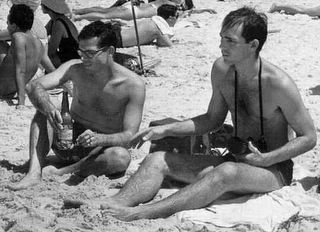
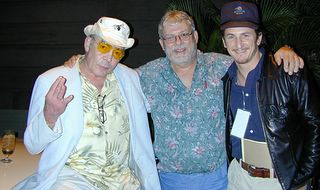

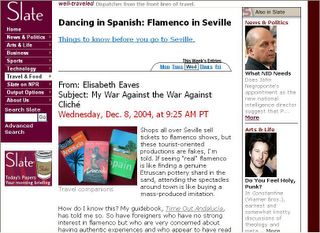
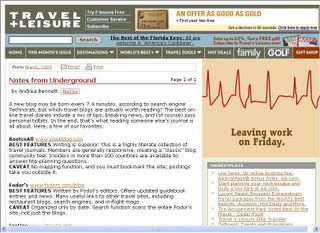


%20-%20Gadling%20-%20www%20gadling%20com%202%2012%202005%209%2036%2045%20AM.jpg)

